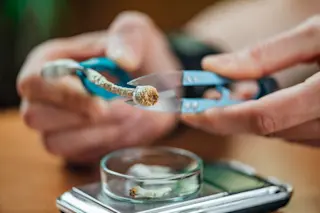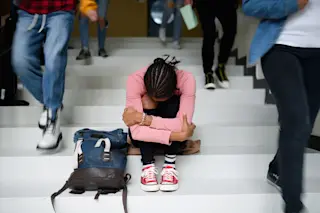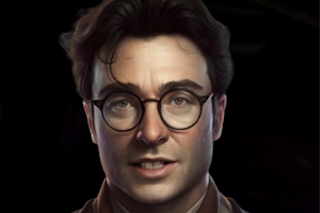Lou Genise, a compact man with a shorn head and Fu Manchu mustache, sat propped up on a mattress in a hospital room tucked away on the fifth floor of Harbor-UCLA Medical Center in Los Angeles. Wearing an eyeshade and listening to music through a headset, he was oblivious to the two psychiatrists sitting nearby, quietly monitoring his every move.
Worry and nausea had been the 37-year-old performance artist’s constant companions during his treatment for metastatic colon cancer that was diagnosed a year earlier. Yet the shroud of negativity lifted under the influence of psilocybin, the psychoactive ingredient in the hallucinogenic mushrooms used in sacred Native American rituals.
Early one morning last July, Genise had taken a little white capsule containing the psychedelic as part of a medically supervised study to test whether it could ease the mental anguish of people with terminal cancer. He had checked into the hospital ...











